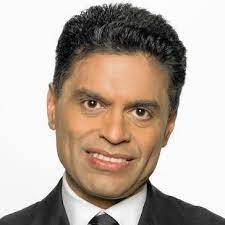holdover
.475 A&M Magnum

Photo was taken in 2009 during primaries. the book is about the dismantling of the United states
"This is not a book about the decline of America, but rather about the rise of everyone else." So begins Fareed Zakaria's important new work on the era we are now entering. Following on the success of his best-selling The Future of Freedom, Zakaria describes with equal prescience a world in which the United States will no longer dominate the global economy, orchestrate geopolitics, or overwhelm cultures. He sees the "rise of the rest"—the growth of countries like China, India, Brazil, Russia, and many others—as the great story of our time, and one that will reshape the world. The tallest buildings, biggest dams, largest-selling movies, and most advanced cell phones are all being built outside the United States. This economic growth is producing political confidence, national pride, and potentially international problems. How should the United States understand and thrive in this rapidly changing international climate? What does it mean to live in a truly global era? Zakaria answers these questions with his customary lucidity, insight, and imagination
Zakaria: In my book I talk about the "rise of the rest" and about the reality of how this rise of new powerful economic nations is completely changing the way the world works. Most everyone's efforts have been devoted to Kyoto-like solutions, with the idea of getting western countries to reduce their carbon dioxide emissions. But I grew to realize that the West was a sideshow. India and China will build hundreds of coal-fire power plants in the next ten years and the combined carbon dioxide emissions of those new plants alone are five times larger than the savings mandated by the Kyoto accords. What do you do with the Indias and Chinas of the world?
Friedman: I think there are two approaches. There has to be more understanding of the basic unfairness they feel. They feel like we sat down, had the hors d'oeuvres, ate the entrée, pretty much finished off the dessert, invited them for tea and coffee and then said, "Let's split the bill." So I understand the big sense of unfairness--they feel that now that they have a chance to grow and reach with large numbers a whole new standard of living, we're basically telling them, "Your growth, and all the emissions it would add, is threatening the world's climate." At the same time, what I say to them--what I said to young Chinese most recently when I was just in China is this: Every time I come to China, young Chinese say to me, "Mr. Friedman, your country grew dirty for 150 years. Now it's our turn." And I say to them, "Yes, you're absolutely right, it's your turn. Grow as dirty as you want. Take your time. Because I think we probably just need about five years to invent all the new clean power technologies you're going to need as you choke to death, and we're going to come and sell them to you. And we're going to clean your clock in the next great global industry. So please, take your time. If you want to give us a five-year lead in the next great global industry, I will take five. If you want to give us ten, that would be even better. In other words, I know this is unfair, but I am here to tell you that in a world that's hot, flat and crowded, ET--energy technology--is going to be as big an industry as IT--information technology. Maybe even bigger. And who claims that industry--whose country and whose companies dominate that industry--I think is going to enjoy more national security, more economic security, more economic growth, a healthier population, and greater global respect, for that matter, as well. So you can sit back and say, it's not fair that we have to compete in this new industry, that we should get to grow dirty for a while, or you can do what you did in telecommunications, and that is try to leap-frog us. And that's really what I'm saying to them: this is a great economic opportunity. The game is still open. I want my country to win it--I'm not sure it will.
Zakaria: I'm struck by the point you make about energy technology. In my book I'm pretty optimistic about the United States. But the one area where I'm worried is actually ET. We do fantastically in biotech, we're doing fantastically in nanotechnology. But none of these new technologies have the kind of system-wide effect that information technology did. Energy does. If you want to find the next technological revolution you need to find an industry that transforms everything you do. Biotechnology affects one critical aspect of your day-to-day life, health, but not all of it. But energy--the consumption of energy--affects every human activity in the modern world. Now, my fear is that, of all the industries in the future, that's the one where we're not ahead of the pack. Are we going to run second in this race?




